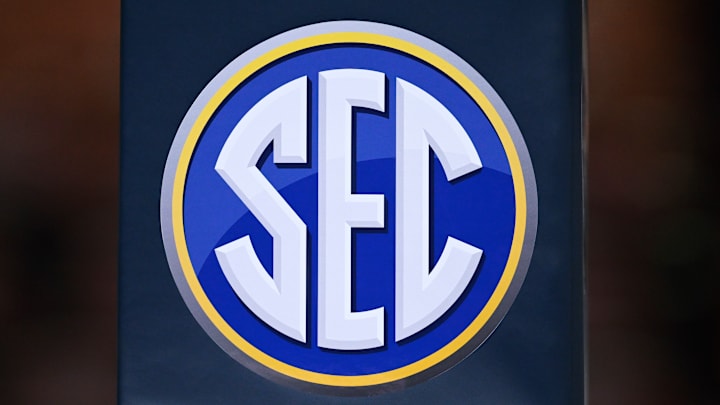The SEC’s decision to require its teams to play nine conference games starting in 2026 had a footnote that might impact USF going forward.
It feels like the move has, temporarily at least, plunged the Bulls into the Twilight Zone.
According to the news release, SEC teams are also required to schedule “at least one additional high-quality non-conference opponent from the Atlantic Coast, Big Ten or Big 12 conferences or Notre Dame each season.”
That means there will be less room on the schedules for non-conference games. So, unless USF gets a seat at the big-boy table through realignment, it could be hard for the Bulls to schedule attractive non-conference opponents.
For now, the Atlantic Coast Conference is sticking with an eight-game schedule, but there likely will be pressure to change that.
USF has non-conference games with P4 programs scheduled through 2034.Next season, USF plays the last of a three-game series with Alabama. That game is probably not in jeopardy because ‘Bama has games with “high quality opponents” West Virginia and Florida State.
Likewise, the Louisville game in 2027 that will christen the Bulls’ new on-campus stadium should be safe, even if the ACC adopts the SEC’s scheduling model. The Cards play Georgia that year, and that’s about as high-quality as it gets.
However, one can never be certain if the big boys will consider USF from a “Group of 5 or 6 conference” (depending on your point of view) an opponent worth keeping on the schedule.
That’s because this move by the SEC is all about money, of course.
It’s about playing one more attractive conference game on the schedule, which at a school like Alabama can mean about $5 million in additional income.
For example, Florida hasn’t played Alabama since 2021, while USF has played the Tide twice since then. A ‘Bama-Gators matchup would generate a lot of buzz (and dollars) for both programs.
Broadcast partners, such as ESPN and other networks, also play a major role in this. The non-conference requirement is designed to preserve rivalry games, such as Florida-Florida State.
Big-time non-conference matchups also make for attractive television. Imagine Ohio State and Georgia on a Saturday night.
And if teams like the Bulls get left behind in this new scheduling scenario, the SEC wouldn’t notice or care. That’s harsh, but it’s also true.
SEC coaches, by the way, were adamantly against this change. They argued that the conference was already tough enough without adding another league game.
They wanted some breathing room.
For instance, Florida’s 2026 non-SEC games include Florida Atlantic and the mighty Campbell Camels. One of those games will probably have to go to meet the new standard.
The “high-quality opponent” rule means that SEC programs will have only two discretionary non-conference games.
This could go in a couple of different directions.
Assuming USF continues to improve but stays in the American Conference, the P4 coaches might prefer to schedule a tomato can or two instead of a team like the Bulls that could beat them.
The opposite direction? Pray that Florida State, Clemson, and/or North Carolina leave the ACC and the conference puts out the welcome mat for USF.
I like that one better.
